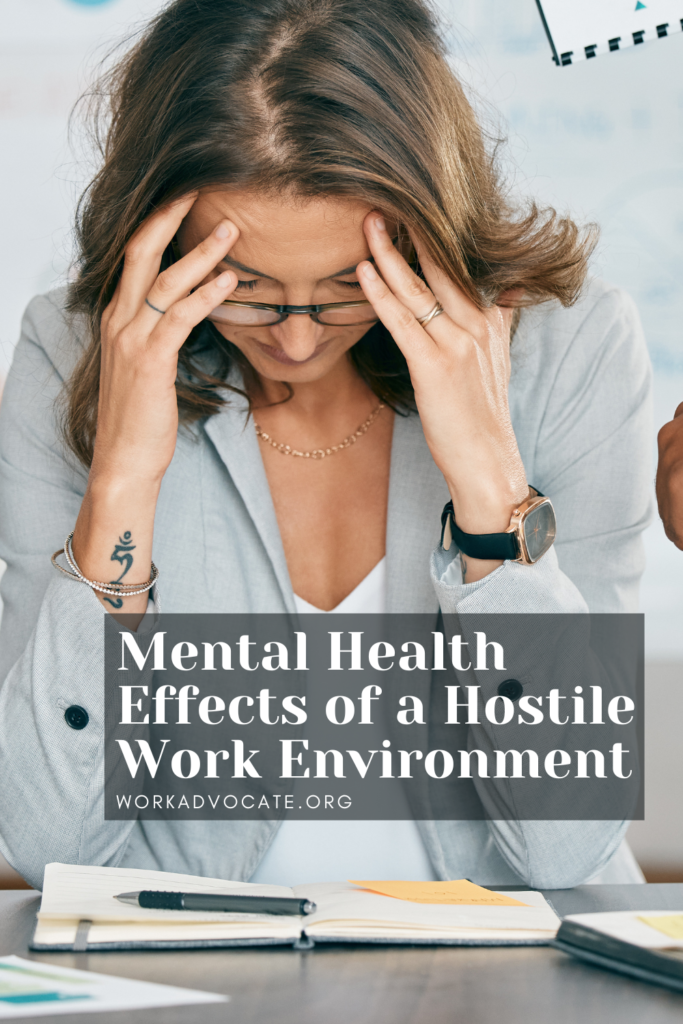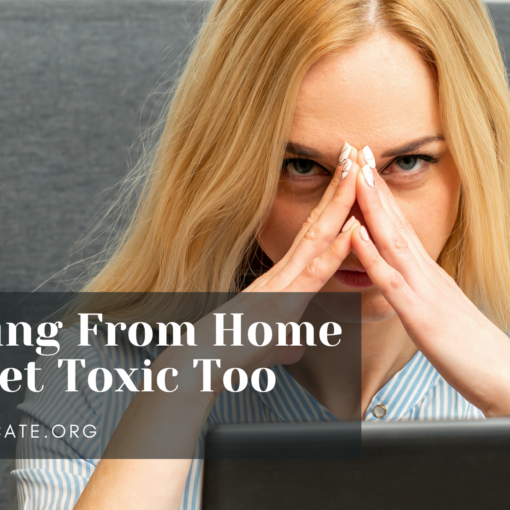
Workplace harassment is not just a legal issue; mental health effects of a hostile work environment are a serious threat to the way you live.
The constant stress, anxiety, and humiliation of working in a hostile environment can leave lasting scars on your emotional well-being.
This post aims to shed light on the mental health effects of workplace harassment, help you recognize the signs, and provide guidance on how to cope and seek support.
The Psychological Toll of Workplace Harassment:
Working in a hostile environment can trigger a range of mental health issues, including:
- Stress: The constant pressure of dealing with harassment can lead to chronic stress, which can manifest in physical symptoms like headaches, fatigue, and digestive problems.
- Anxiety: The fear of being targeted again, the uncertainty of how the situation will be resolved, and the potential for retaliation can all contribute to heightened anxiety levels.
- Depression: Feelings of hopelessness, sadness, and loss of interest in activities you once enjoyed are common among victims of workplace harassment.
- Post-Traumatic Stress Disorder (PTSD): In severe cases, workplace harassment can lead to PTSD, a mental health condition triggered by experiencing or witnessing a traumatic event.
- Substance Abuse: Some individuals may turn to drugs or alcohol as a way to cope with the stress and trauma of a hostile work environment.
- Sleep Disorders: Difficulty falling asleep, staying asleep, or experiencing nightmares can result from the anxiety and stress caused by harassment.
Signs That Your Mental Health is Suffering:
- Persistent feelings of sadness, hopelessness, or worthlessness
- Excessive worry or anxiety
- Irritability, anger, or difficulty controlling emotions
- Difficulty concentrating or making decisions
- Changes in appetite or sleep patterns
- Social withdrawal or isolation
- Loss of interest in activities you once enjoyed
- Physical symptoms like headaches, stomachaches, or fatigue
Mental Health Coping Mechanisms and Strategies:
- Talk to someone you trust: Sharing your experience with a friend, family member, therapist, or support group can provide emotional relief and validation.
- Practice self-care: Prioritize activities that promote relaxation and well-being, such as exercise, meditation, hobbies, and spending time in nature.
- Set boundaries: Limit your interactions with the harasser as much as possible.
- Seek professional help: A therapist or counselor can help you process your emotions, develop coping mechanisms, and address any mental health issues that may arise.
Workplace harassment is not something you have to endure alone. If you’re struggling with the mental health effects of a hostile work environment, reach out for help. Remember, your well-being is important, and seeking support is a sign of strength.
If you’re facing a difficult situation at work, don’t hesitate to seek help.
ACTION: For a step-by-step plan to protect your rights, document and navigate a hostile work environment, download our guide, The Hostile Workplace Defender .
Related Posts:
How Do I Document Workplace Harassment?
Afraid of Retaliation after Reporting Harassment?
Can I Record Conversations or Take Photos as Evidence?
Should I Report the Problem or Just Quit?
What Should I Do If HR Doesn’t Take My Complaint Seriously?
When My Boss Is A Bully
How Do I Find A Job After Leaving A Toxic Workplace?




